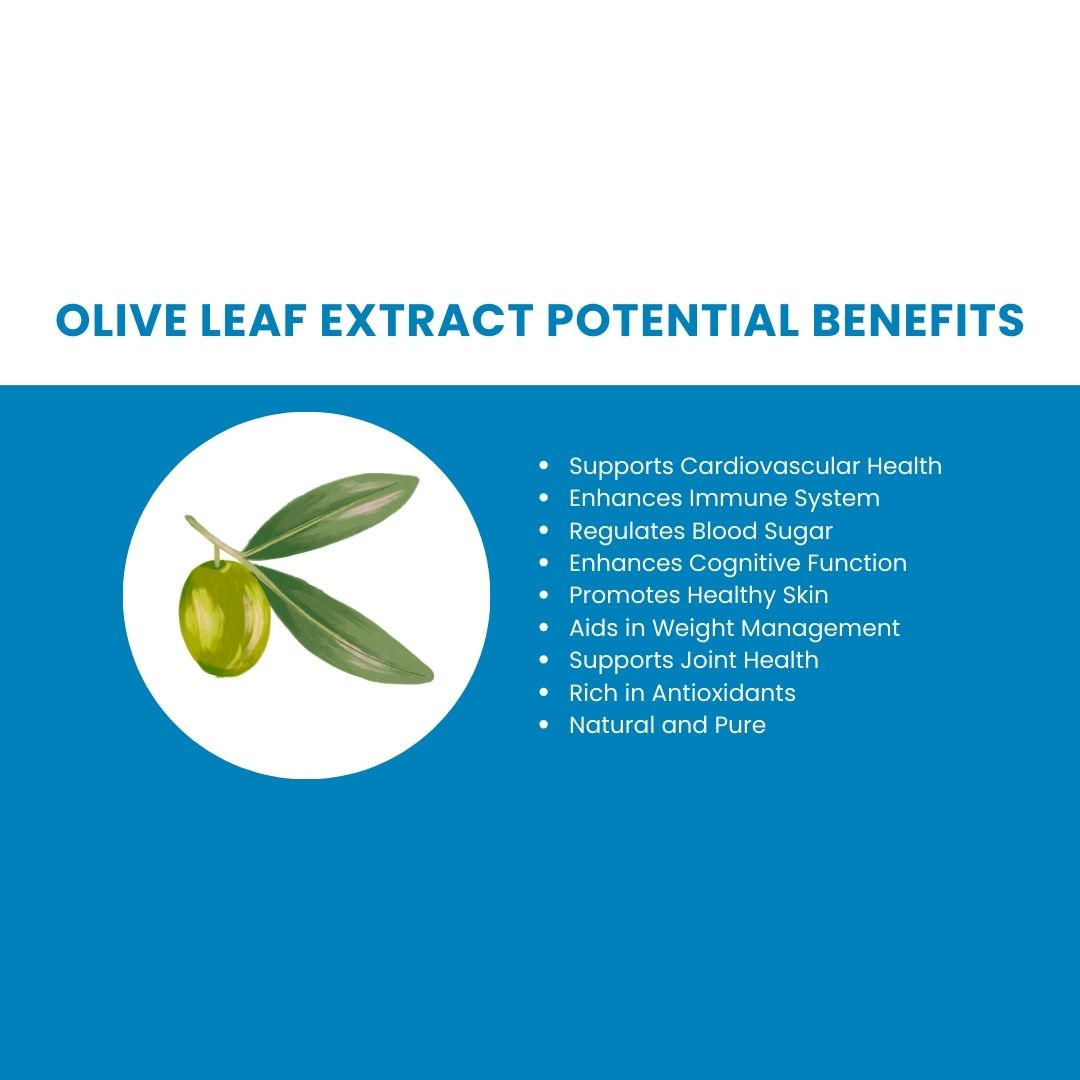
© 2023 House of Health. All rights reserved.
Web Design by Netbloom
Web Design by Netbloom
Olive leaf extract, derived from the leaves of Olea europaea, has garnered attention for its potential health benefits.
Olive trees are synonymous with the Mediterranean region, famous for the oil which is the foundational fat of the health-associated Mediterranean diet. The use of olives, olive oil and olive leaf extract is supported by both traditional uses and modern research. Let’s look into the health advantages the herbal extract may offer.
The olive tree, a symbol of peace and health, has been valued not only for the olives it produces, but also for its leaves. Historical records and practices suggest olive leaves have long been used for health purposes, a notion that recent studies have begun to explore and support with scientific evidence.

Olive leaf extract contains antioxidants that may help protect the cardiovascular system. Some research points to its ability to modestly lower blood pressure and improve cholesterol levels, which are important factors in heart health [ref].
Olive leaf extract may also play a role in supporting the immune system [ref]. Antimicrobial properties could also help the body defend against certain bacteria and viruses, potentially offering a natural way to enhance immune resilience.
For individuals dealing with diabetes or pre-diabetes, olive leaf extract might offer numerous benefits [ref]. Research [ref] indicates that olive leaf extract is beneficial for both cholesterol management and blood sugar control in diabetic rats and the indications to date are that it may be as effective among humans. It may works by improving insulin sensitivity and managing blood sugar levels, which is crucial for diabetes care [ref].
The antioxidants in olive leaf extract might also support brain health, possibly protecting against age-related cognitive decline [ref]. This makes it a candidate for those interested in maintaining cognitive function over time.
Olive leaf extract’s anti-inflammatory and antioxidant effects may benefit the skin by protecting against environmental damage and promoting a healthier complexion from within. Inclusion of the extract in topical applications may also be of benefit for a range of skin conditions [ref}.
Some studies have explored olive leaf extract’s potential to assist in weight management by affecting how the body processes fats and sugars. However, it should complement, not replace, a healthy, balanced diet and regular exercise [ref].
The anti-inflammatory properties of olive leaf extract could offer relief and support to those with active lifestyles or joint discomfort, helping to improve mobility and quality of life [ref].
Olive leaf extract is available in various forms. You can take a capsule, make a tea from the fresh or dried leaves, or use a herbal tincture. When selecting a supplement, look for products with clear labeling about oleuropein content, which is key to the extract’s benefits.
While olive leaf extract is associated with several health benefits, it’s best used as part of a comprehensive approach to health that includes a nutritious diet, adequate exercise, and restorative rest.
If you are considering adding it to your health regimen, consulting with a healthcare provider is advisable, especially if you do have specific health conditions or are pregnant or breastfeeding.
Olive leaf extract offers a range of potential health benefits, from supporting heart and immune health to aiding in blood sugar management and skin health. Its historical use and growing body of research make it a supplement worth considering for those interested in natural health options. However, we recommend that olive leaf extract is a supplement to, rather than a replacement for, other health-promoting habits and treatments.
.





What Are Food Cravings? Food cravings can be driven by a combination of physiological, psychological, and environmental factors. Here are some common
House of Health Ltd
Some customers are experiencing glitches in the payment gateway but our IT folk are stumped. If this happens to you, we'd appreciate a screenshot or screen recording. Dismiss
Stay informed: Get expert tips, free advice, updates, recipes, and special offers delivered straight to your inbox.